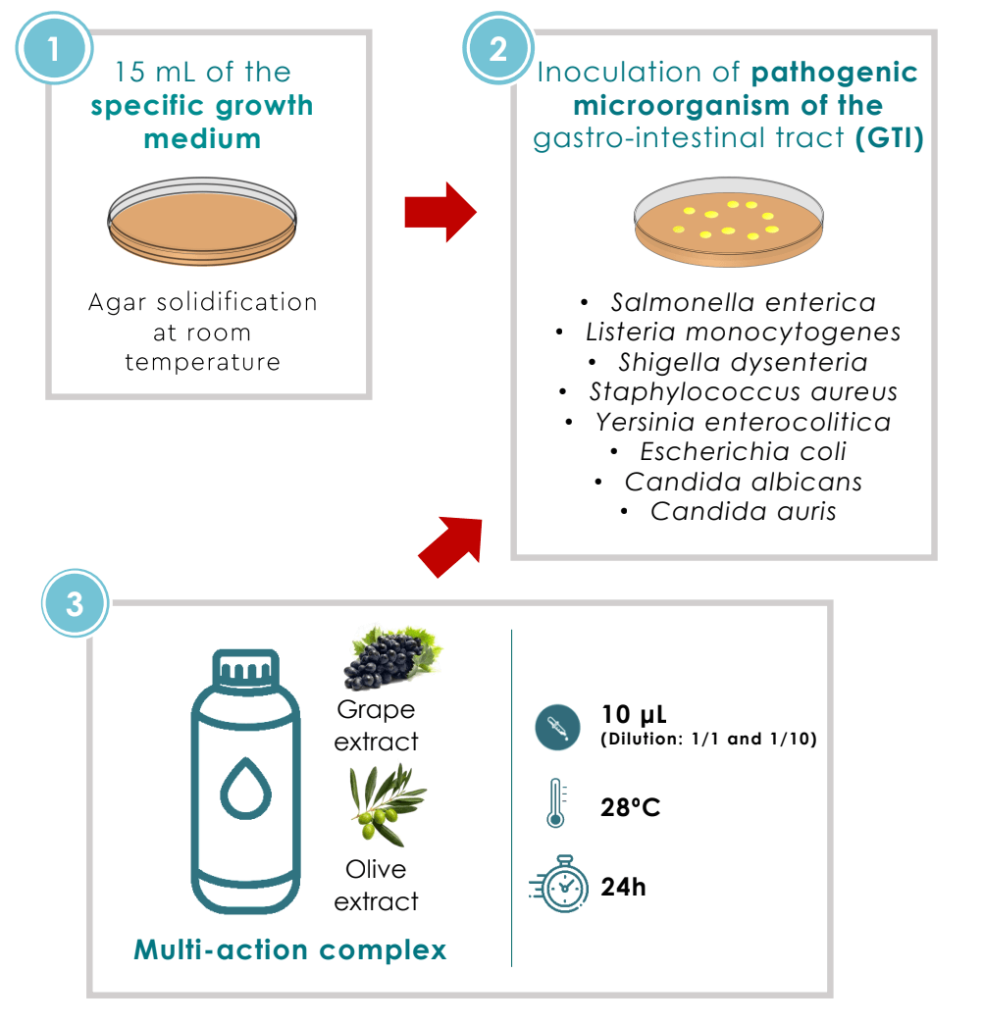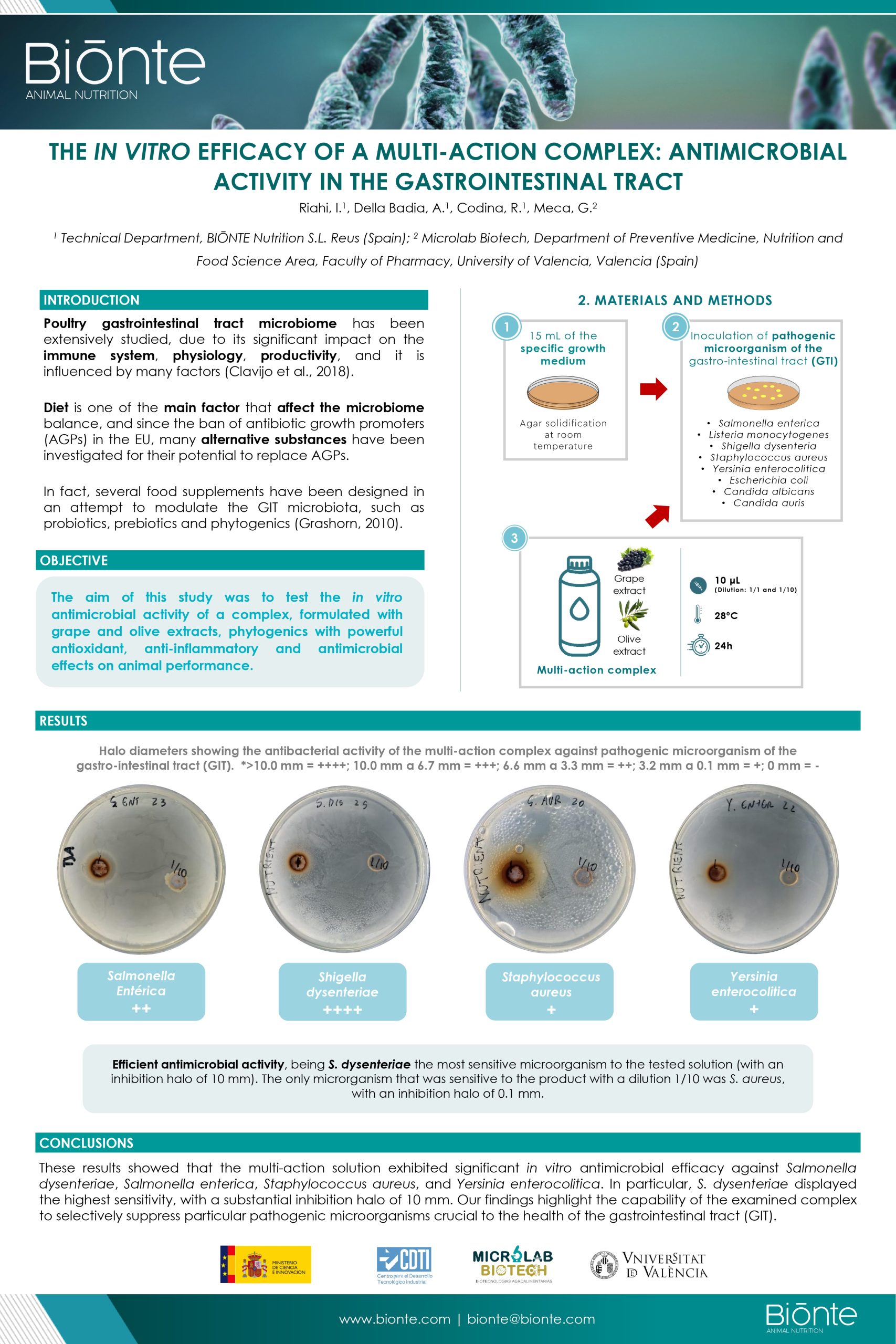INTRODUCTION
Poultry gastrointestinal tract microbiome has been extensively studied, due to its significant impact on the immune system, physiology, productivity, and it is influenced by many factors (Clavijo et al., 2018).
Diet is one of the main factor that affect the microbiome balance, and since the ban of antibiotic growth promoters (AGPs) in the EU, many alternative substances have been investigated for their potential to replace AGPs.
In fact, several food supplements have been designed in an attempt to modulate the GIT microbiota, such as probiotics, prebiotics and phytogenics (Grashorn, 2010).
OBJECTIVE
The aim of this study was to test the in vitro antimicrobial activity of a complex, formulated with grape and olive extracts, phytogenics with powerful antioxidant, anti-inflammatory and antimicrobial effects on animal performance.
MATERIALS AND METHODS

RESULTS
Halo diameters showing the antibacterial activity of the multi-action complex against pathogenic microorganism of the gastro-intestinal tract (GIT). *>10.0 mm = ++++; 10.0 mm a 6.7 mm = +++; 6.6 mm a 3.3 mm = ++; 3.2 mm a 0.1 mm = +; 0 mm = –

Efficient antimicrobial activity, being S. dysenteriae the most sensitive microorganism to the tested solution (with an inhibition halo of 10 mm). The only microorganism that was sensitive to the product with a dilution 1/10 was S. aureus, with an inhibition halo of 0.1 mm.
CONCLUSIONS
These results showed that the multi-action solution exhibited significant in vitro antimicrobial efficacy against Salmonella dysenteriae, Salmonella enterica, Staphylococcus aureus, and Yersinia enterocolitica.
In particular, S. dysenteriae displayed the highest sensitivity, with a substantial inhibition halo of 10 mm. Our findings highlight the capability of the examined complex to selectively suppress particular pathogenic microorganisms crucial to the health of the gastrointestinal tract (GIT).





